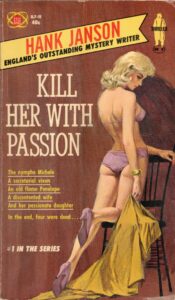
Just after Christmas of 2023 … it may have been in the new year and it may not … my wife and I were driving by a Little Library in our neighborhood and she said “You want to check it out?” and I said yes and—30 seconds later she saw me coming to the car with a stack of paperbacks, a whole passel of these Penguin Modern Poets series. And so I’ve been reading these for the past year or so, and my last completed set of a hundred books (finished back in early October last year) saw me finishing this exemplar, No. 7 in the series, as book #1300 capping off that last century of books. I’ve already mentioned the two poets of three who I liked in this slim volume, so I won’t repeat myself here.
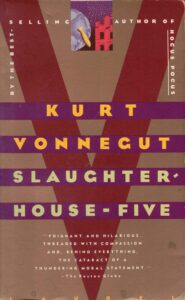
And as I’ve also already told you before, I started this last set of 100 books with Vonnegut’s arguably most famous work, Slaughterhouse-Five. I waxed rhapsodic (I think that’s the only way to wax; is that right?) about it in one of those last two posts I linked to just now, so I won’t bother you anymore about it, save to say that it has been a pleasure revisiting Kurt Vonnegut, and has made me more willing to try returning to some old favorite authors of my misspent youth (pace Tom Robbins, and R.I.P.).
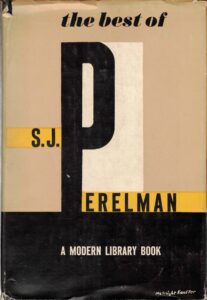
Sometimes I’m not in the right mood to enjoy S. J. Perelman, but that’s on me. Because, as this Modern Library collection proves, Perelman writes humor (which is the most difficult type of writing to essay) as well if not better than anyone else ever. Nobody can write the way he does, and The Best Of S. J. Perelman proves this over and over again. He’s like a manic uncle who you haven’t seen who remembers every movie y’all watched together at grandmama’s house that Christmas forty years ago, but he’s mixed up the plots with something his co-worker told him about a book his daughter was reading (the co-worker’s daughter, not your uncle’s, although … you know what, never mind). Nobody can top him (Perelman, not your uncle’s co-worker’s daughter), so I won’t even try.
| # |
Read |
Author |
Title |
Genre |
| 1201 |
6/16/24 |
Kurt Vonnegut |
Slaughterhouse-Five |
Fiction |
| 1202 |
6/17/24 |
Daniel M. Pinkwater |
The Worms of Kukumlima |
Children’s |
| 1203 |
6/18/24 |
Leonora Carrington |
Down Below |
Surrealism |
| 1204 |
6/19/24 |
Doris Lessing |
Martha Quest |
Fiction |
| 1205 |
6/20/24 |
S. J. Perelman |
The Best Of S. J. Perelman |
Humor |
| 1206 |
6/21/24 |
Homer; Richmond Lattimore, trans. |
The Iliad of Homer |
Poetry |
| 1207 |
6/23/24 |
Arthur Morrison |
Best Martin Hewitt Detective Stories |
Mystery |
| 1208 |
6/24/24 |
Mark Steel |
Vive la Revolution: A Stand-up History of the French Revolution |
History |
| 1209 |
6/26/24 |
Albert Soboul |
The Sans-Culottes |
History |
| 1210 |
6/27/24 |
Christopher Moore |
Lamb: The Gospel According to Biff, Christ’s Childhood Pal |
Fiction |

Stoner was that rare novel that lived up to the hype and made it understandable, made me want to add to it, hype this book to all and sundry. The beautiful perfect story of a seemingly ordinary man who finds his life’s calling and a passion for literature is … well, perfect. It’s the best novel I’ve read in years and years and years. Really, I cannot describe it nor would I want to, when you can read the book yourself. I have to confess, however, that I loved this novel so much that I’ve hesitated to read or even acquire (which is what I do mostly with books) any other of John Williams’s novels—and there’s only three I believe. I’m so afraid the magic won’t be repeated, and I’m still almost a year later blown away by just how freaking good this story is.

Is this book the first movie novelization ever? I doubt it, but the fact remains that this thin volume was written especially as an adjunct for the movie release—though strangely enough, if I remember aright (like I said in the paragraph above, it’s been almost a year since I was reading these books), the book of King Kong actually came out before the movie. (Can that be right?) The story is credited to one Delos W. Lovelace, which is good, because the writing credit for the movie is fraught with caveats and footnotes. The novelization is excellent, with almost the same perfect pacing as the movie, though the ending felt perhaps just a trifle rushed.
| # |
Read |
Author |
Title |
Genre |
| 1211 |
6/27/24 |
John Williams |
Stoner |
Fiction |
| 1212 |
6/28/24 |
Steve Allen |
Murder On The Atlantic |
Mystery |
| 1213 |
6/29/24 |
Connie Willis & Cynthia Felice |
Water Witch |
SF & Fantasy |
| 1214 |
6/29/24 |
J. R. R. Tolkien |
Leaf By Niggle |
SF & Fantasy |
| 1215 |
6/29/24 |
John Robinson, ed. |
John Lennon: Every Album Reviewed! |
Music |
| 1216 |
6/29/24 |
Delos W. Lovelace |
King Kong |
SF & Fantasy |
| 1217 |
6/30/24 |
Thomas Cleary |
Zen Essence: The Science of Freedom |
Religion & Spirituality |
|
6/30/24 |
Kamala Chandrakant |
Prahlad: The Child Devotee of Vishnu, from the Bhagawat Purana |
Comics |
|
7/1/24 |
Bharati Sukhatankar |
King Janaka |
Comics |
|
7/1/24 |
Anant Pai, ed. |
Krishna: The Childhood of the Eighth Avatar of Vishnu |
Comics |
| 1218 |
7/1/24 |
Patricia Wentworth |
The Alington Inheritance |
Mystery |
|
7/2/24 |
Kamala Chandrakant |
Krishna and Jarasandha: The Story of How the Invicible Magadhan Emperor Was Vanquished |
Comics |
| 1219 |
7/3/24 |
Michael Crichton |
Prey |
Thrillers |
|
7/3/24 |
Kamala Chandrakant |
Krishna and Rukmini |
Comics |
| 1220 |
7/3/24 |
James Orchard Halliwell-Phillipps and A. J. Storey |
Cambridge Jokes: From the Seventeenth to the Twentieth Century (Cambridge Library Collection – Cambridge) |
Humor |
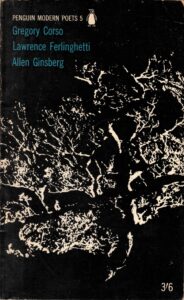
There were a few good ones in the next set of ten books, but there were also some so-sos, and even a few ughs. But one of the good ‘uns was another one of the Penguin Modern Poets series, as you can probably guess by the poets included: Gregory Corso, Lawrence Ferlinghetti, and Allen Ginsberg. Ferlinghetti was the revelation here; I don’t think I’d really read much of him before, and I found myself loving what he did with words, moreso than Ginsberg. But poetry’s a personal thing, natch, so … well, that’s what I thought … according to my notes. Like I said, it’s been a year. Almost.
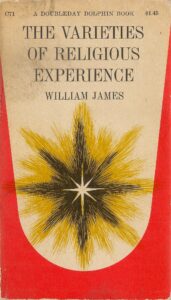
The other highlight from this decade of books was the classic Varieties Of Religious Experience, by William James. It had been a while since I’d read it, and James’s prose was even more powerful than I remembered. This is how religious thought should be examined, with respect and interest, and letting the facts lead to the conclusions, rather than vice versa. Speaking of the conclusion, William James really hits his out of the park. (Also worthy of note are his chapters on ‘Mysticism’ and ‘Philosophy’.)
| # |
Read |
Author |
Title |
Genre |
| 1221 |
7/6/24 |
Terry Pratchett |
Interesting Times |
SF & Fantasy |
|
7/7/24 |
Shubha Khandekar |
Mahabharata – 31: Bheeshma In Command |
Comics |
|
7/7/24 |
Shubha Khandekar |
Mahabharata – 33: Drona’s Vow |
Comics |
| 1222 |
7/7/24 |
Aaron Betsky, K. Michael Hays, Laurie Anderson, et al. |
Scanning: The Aberrant Architectures of Diller + Scofidio |
Architecture |
| 1223 |
7/8/24 |
Michael Bonner, ed. |
Uncut Magazine September 2023 |
Music |
| 1224 |
7/10/24 |
Gregory Corso, Lawrence Ferlinghetti, & Allen Ginsberg |
Penguin Modern Poets 5 Corso Ferlinghetti Ginsberg |
Poetry |
| 1225 |
7/10/24 |
William James |
The Varieties of Religious Experience |
Philosophy |
| 1226 |
7/11/24 |
Johnny (Appleseed) Rossen, ed. |
The Little Red White and Blue Book: Revolutionary Quotations by Great Americans |
Reference |
| 1227 |
7/12/24 |
James Ellroy |
The Big Nowhere |
Mystery |
| 1228 |
7/14/24 |
Piers Anthony |
Juxtaposition |
SF & Fantasy |
| 1229 |
7/17/24 |
Anthony Blond |
A Brief History of the Private Lives of the Roman Emperors |
History |
| 1230 |
7/17/24 |
David Icke |
Phantom Self (and how to find the real one) |
Wacko |
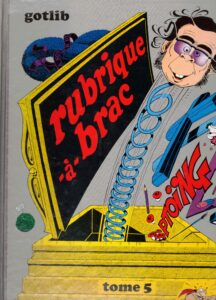
Mounds of ‘meh’ in this next tranche of books, of which this collection of some of Marcel Gotlib’s work from old bandes desinéees is the second best. Really, some of this stuff is very, very clever, and would give MAD magazine a run for its money. Or likely it would, were my French better. But it’s not all gravy, or tea and crumpets, or whatever the appropriate phrase would be en français. Some of this stuff had aged pretty poorly, but then a lot of stuff from the 70s doesn’t hold up too well to close inspection. I’m not talking about The Eagles, more stuff like Quincy M.E., which has nothing to do with anything. Never mind.

The best of a bad lot is this tradeback collection of George Gamow’s physics lectures disguised as dream fictions, Mr. Tompkins In Paperback: Containing Mr. Tompkins in Wonderland And Mr. Tompkins Explores the Atom. And it was … okay, again. Don’t get me wrong. I love … love, love, love Mr. Tompkins In Wonderland. That book and its essays are some of the best explanations of quantum physics ever given for the layman, and they’re real fun, too. But … well, the other stories, from … Explores The Atom, don’t quite have the same panache, plus they were outdated rather quickly, and have aged even more since that collection was first published in 1945. (Everyone wanted to learn more about the atom at the time, for some reason.) Plus—and this is the deal-breaker—pretty much all the original illustrations from the first book are replaced by poorer versions from the pen of Mr. Gamow himself. And, as an illustrator, he’s a wonderful popular science writer.
| # |
Read |
Author |
Title |
Genre |
| 1231 |
7/20/24 |
Richard P. Stebbins |
The United States in World Affairs 1959 |
History |
| 1232 |
7/21/24 |
Ken Lytle & Katie Corcoran Lytle |
The Little Book of Big F*#k Ups: 220 of History’s Most-Regrettable Moments |
History |
| 1233 |
7/22/24 |
Francesco Colonna; Joscelyn Godwin, trans. |
Hypnerotomachia Poliphili: The Strife of Love in a Dream |
Fiction |
|
7/22/24 |
Marcel Gotlib |
Rubrique-à-brac, tome 5 |
Comics |
| 1234 |
7/24/24 |
Kate Ross |
The Devil in Music |
Mystery |
| 1235 |
7/24/24 |
Larry Wilhelm |
Pathfinder Adventure Path #92: Giantslayer Part 2 – The Hill Giant’s Pledge |
D&D |
| 1236 |
7/25/24 |
Richard McKee |
The Clan of the Flapdragon and Other Adventures in Etymology by B. M. W. Schrapnel, Ph.D. |
Linguistics |
| 1237 |
7/26/24 |
George Gamow |
Mr Tompkins in Paperback: Containing Mr. Tompkins in Wonderland And Mr. Tompkins Explores the Atom |
Science |
| 1238 |
7/27/24 |
Laurie Lee |
A Rose for Winter |
Travel |
| 1239 |
7/28/24 |
A Rose for Winter |
Bonk: The Curious Coupling of Science and Sex |
Science |
| 190* |
7/29/24 |
Alan Axelrod |
The Complete Idiot’s Guide To The Civil War |
History |
| 1240 |
7/30/24 |
Stephen B. Oates |
The Fires of Jubilee: Nat Turner’s Fierce Rebellion |
History |
* I mistakenly re-read The Complete Idiot’s Guide To The Civil War (originally read back in 2018) under the misapprehension that I hadn’t read it before
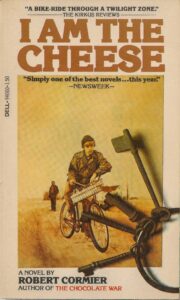
I re-read I Am The Cheese as part of my recent project of revisiting the books I loved in youth to see how (and if) they held up, to see what my arguably more mature viewpoint—or at least my older eyes—found in those volumes that had meant so much to me in my teenage years. And Robert Cormier’s multi-layered tale of teen angst and fear and mistrust certainly was still compelling, very well-written even to my aged and perhaps more cynical and jaded sensibility. The story was, however, completely different from how I remembered it. For years I’ve been telling people that I can’t believe they proffered this book to children, to teenagers, as something those youthful minds should read. And I stand by that statement. Only, I’d remembered it as something much more internally oppressive and dark, whereas the actual tale was … well, it’s something you should read yourself, n’est-ce pas? I can only imagine how it must have fed my already nascent antipathy towards psychology and psychologists.
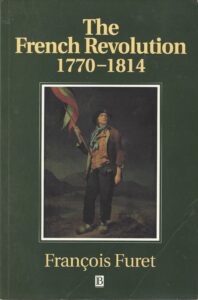
Whatever you may think of his reimagining of French historical approaches to the French Revolution, François Furet is truly one of the great geniuses among French historians. This book, The French Revolution: 1770–1814 (Part I of Furet’s Revolutionary France, 1770–1880), is simply brilliant. As they say, “magisterial”. The sweeping overview of one of the most knotty and overfull spans of history is a masterpiece, written by a master of his materials. The excellent bibliography is worth the price on its ownsome. Reading Furet’s history was the very first time that the Directory and the rise of Napoleon made sense to me.
| # |
Read |
Author |
Title |
Genre |
| 1241 |
7/31/24 |
Alex Bosse |
Elephants on Acid: And Other Bizarre Experiments |
Science |
| 1242 |
7/31/24 |
Margery Allingham |
Pearls Before Swine |
Mystery |
|
7/31/24 |
Rishabhdas Ranka |
Mahavira: The Prince Who Became a Recluse and Propagated Jainism |
Comics |
|
8/1/24 |
Meera Ugra |
Mahiravana: The Son of Ravana |
Comics |
|
8/1/24 |
Anant Pai, ed. |
Mirabai: The Touching Tale of a Great Devotee of Krishna |
Comics |
| 1243 |
8/1/24 |
Kenneth Atchity |
A Writer’s Time: Making the Time to Write |
Reference |
|
8/2/24 |
Anant Pai, ed. |
Nala Damayanti: Retold From The Mahabharata |
Comics |
| 1244 |
8/3/24 |
Coach Jim Everroad |
How To Flatten Your Stomach |
Health |
| 1245 |
8/3/24 |
Robert Cormier |
I Am The Cheese |
Fiction |
|
8/6/24 |
Gayatri M. Dutt |
Narayana Guru |
Comics |
|
8/6/24 |
|
Padmavati: A Tale from Vetala Panchavimshati |
Comics |
|
8/6/24 |
Luis Fernandes |
Panchatantra: Crows and Owls and other stories |
Comics |
| 1246 |
8/6/24 |
Herman Melville |
Billy Budd, Sailor, and Other Stories |
Fiction |
| 1247 |
8/9/24 |
François Furet |
The French Revolution: 1770–1814 |
History |
| 1248 |
8/10/24 |
Susan Cheever |
Note Found in a Bottle: My Life as a Drinker |
Biography |
| 1249 |
8/11/24 |
George Carlin |
Three Times Carlin: An Orgy of George |
Humor |
| 1250 |
8/12/24 |
Robert van Gulik |
The Chinese Nail Murders |
Mystery |

Bond is back, baby! After the ridiculous pretensions of The Spy Who Loved Me, where Ian Fleming tried to prove that he is too a real writer dammit—with the result that the first 65 pages of that slight tale (nothing like the movie) are a coming-of-age tale of a sweet young thing not entirely unacquainted with love and sex—James Bond returns to fine form in On Her Majesty’s Secret Service. It is an exceptional tale in Fleming’s oeuvre, with bona fide pathos—though of course I knew how it would all end. Sad, ruthless, and slightly less drunken than usual.
Welp … I must’ve disliked State Of Fear so much that I didn’t even scan the cover (my usual procedure with all my books nowadays) before getting rid of it. Don’t get me wrong: I love Michael Crichton. When he’s in his element and doing what he does best, there’s nobody to compare. I read The Andromeda Strain something like five times in high school, and still think that The Eaters Of The Dead is the best retelling of the Beowulf story bar none. But I spent my time whilst reading this tome debating to myself whether I was reading a so-so polemic or a not-so-good thriller, before deciding that it certainly was polemic, and that the thrills were few and far between. The ludicrous plot of a ludicrously well-financed group of eco-terrorists constructing ecological disasters to promote their conspiratorial takeover of government funding was … well, ludicrous. Not just unbelievable, it made me feel sorry for the successful smart people who apparently live in an information bubble as impenetrable as those that pundits worry that devotees of Fox or MSNBC find themselves trapped in. Pity those people who only get their ideas from mirror images of rich people who see conspiracies in every funding bill, and who have literally zero idea of how the great mass of humanity makes it from one end of the day to the other.
| # |
Read |
Author |
Title |
Genre |
| 1251 |
8/13/24 |
Michael Crichton |
State Of Fear |
Mystery |
| 1252 |
8/15/24 |
Ian Fleming |
On Her Majesty’s Secret Service |
Mystery |
| 1253 |
8/16/24 |
Phil Cousineau |
Soul: An Archaeology: Readings from Socrates to Ray Charles |
Religion & Spirituality |
| 1254 |
8/17/24 |
Michael Rutter |
Upstairs Girls: Prostitution in the American West |
History |
| 1255 |
8/18/24 |
Victoria Thompson |
Murder on St. Mark’s Place |
Mystery |
| 1256 |
8/19/24 |
Victoria Thompson |
Murder on Gramercy Park |
Mystery |
| 1257 |
8/19/24 |
Walt Disney |
Bambi |
Foreign Language |
| 1258 |
8/21/24 |
Thomas Ayres |
That’s Not in My American History Book: A Compilation of Little-Known Events and Forgotten Heroes |
History |
|
8/22/24 |
Pushpa Bharati, Suresh Chandra Sharma, & Kamala Chandrakant |
Poet Saints of North-India: Soordas, Tulsidas, Mirabai |
Comics |
|
8/23/24 |
Gilbert Shelton, Tony Bell, & Joe Brown |
Wonder Wart-Hog and the Battle of the Titans! |
Comics |
| 1259 |
8/24/24 |
Victoria Thompson |
Murder on Bank Street |
Mystery |
| 1260 |
8/25/24 |
Alice R. Huger Smith & D.E. Huger Smith |
The Dwelling Houses of Charleston South Carolina |
Mystery |
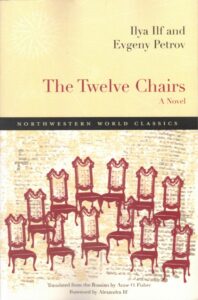
My Russian coworker has been touting this book for ages, and I finally bit the bullet and bought it new, after failing for a couple of years to find it in used bookstore. And it was great. Hard to believe it’s almost a hundred years old, and it may have made me rethink the Russian Revolution entirely. For me it started slowly, which isn’t too surprising seeing that it was written in serial form, but it got progressively funnier and crazier and more madcap until …. Well, one doesn’t speak of endings or spoilers, and it shouldn’t have come as a surprise. Yet Dmitri tells me there’s a sequel?

I told you before how much I liked Hal Clement’s Mission Of Gravity, in one of my rare book reports of the past few years. And the hard science acumen Clement displayed there is also foregrounded here in The Nitrogen Fix, though without quite the same level of pedantic mathematical detail. But I may have liked this one better, certainly found it an easier read, because of both the interesting psychology and the deep backgrounding of the heavy hard science.
| # |
Read |
Author |
Title |
Genre |
| 1261 |
8/25/24 |
Mary Lynn Rampolla |
A Pocket Guide To Writing In History |
Historiography |
| 1262 |
8/26/24 |
Roger Price |
I’m For Me First: The Secret Handbook for the Me First Party |
Humor |
|
8/26/24 |
Mike Baron |
Badger #18 |
Comics |
|
8/26/24 |
Russ Cochran, ed. |
Weird Science #7 |
Comics |
| 1263 |
8/27/24 |
Ilya Ilf & Evgeny Petrov |
The Twelve Chairs |
Fiction |
|
8/27/24 |
Mike Baron |
Badger #17 |
Comics |
| 1264 |
8/28/24 |
Alexandra Villard de Borchgrave & John Cullen |
Villard: The Life and Times of an American Titan |
Biography |
| 1265 |
8/29/24 |
Michael Bonner, ed. |
Uncut Magazine December 2023 |
Music |
|
8/29/24 |
Shobha Gangolli & Malati Deshpande |
Pundalik and Sakhu: Two Famous Saints of Maharashtra |
Comics |
| 1266 |
8/29/24 |
Hal Clement |
The Nitrogen Fix |
SF & Fantasy |
| 1267 |
8/30/24 |
Jack Clemo, Edward Lucie-Smith, & George MacBeth |
Penguin Modern Poets 6: Clemo Lucie-Smith MacBeth |
Poetry |
| 1268 |
8/31/24 |
Barbara Hambly |
Fever Season |
Mystery |
| 1269 |
8/31/24 |
Eileen Roth & Eliabeth Miles |
Organizing for Dummies Pocket Edition |
Home & Garden |
|
8/31/24 |
Russ Cochran, ed. |
Weird Science #6 |
Comics |
| 1270 |
8/31/24 |
Robert Aitken |
The Dragon Who Never Sleeps: Verses for Zen Buddhist Practice |
Religion & Spirituality |
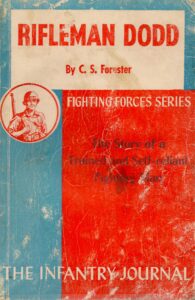
Rifleman Dodd was not at all what I expected. Of course, my edition was a wartime Fighting Forces Series edition from The Infantry Journal, and in the US the thrilling tale of partisan fighting was retitled from the original Death To The French, so I had little reason to suspect I was about to read another of C. S. Forester’s matchless tales of military derring-do, this time the narrative of a British grunt who gets cut off during the orderly retreat of his unit fighting in Portugal during the Peninsular War against Napoleon. Really, it’s an amazing tale, and I can well see why the military would want its own soldiers to read and learn the book’s many lessons on how to think and survive and fight even at the lowest level of the army. An excellent book, though it made me cry, and even though patriotism is the most shameful emotion for a cynic; still, Forester does such a better job of tugging (gently) on those heartstrings than anything the MCU ever thought of.

Mazes Of Scorpio finds Dray Prescot returning to his roots in this slash-‘em devil-may-care romp. In this 27th [!] book in the series, Alan Burt Akers (pen name for Kenneth Bulmer) puts Dray (now emperor of Valia, among many other titles) back together with Seg Seguturio as his companion as they struggle through the hellish mazes of far Pandahem. Along the way, however, are strange intimations from the Star Lords and yet one feels the worries of the Emperor of Vallia falling from his massive shoulders as he traipses through the jungle with one of his oldest friends.
| # |
Read |
Author |
Title |
Genre |
| 1271 |
9/2/24 |
Bill P., Todd W., and Sara S. |
Drop the Rock: Removing Character Defects – Steps Six and Seven |
Self-Help |
|
9/2/24 |
Russ Cochran, ed. |
Weird Science #4 |
Comics |
| 1272 |
9/2/24 |
National Lampoon |
National Lampoon 1964 High School Yearbook Parody |
Humor |
|
9/2/24 |
Russ Cochran, ed. |
Weird Science #1 |
Comics |
| 1273 |
9/6/24 |
Robert A. Heinlein |
Time Enough for Love |
SF & Fantasy |
| 1274 |
9/6/24 |
Albert Camus |
La Peste |
Foreign Language |
| 1275 |
9/7/24 |
C. S. Forester |
Rifleman Dodd |
Fiction |
| 1276 |
9/9/24 |
Leslie Charteris |
The Saint: The Last Hero |
Mystery |
| 1277 |
9/12/24 |
Diogenes Laërtius; C. D. Yonge, trans. |
The Lives And Opinions Of Eminent Philosophers |
Philosphy |
| 1278 |
9/13/24 |
Tom Robbins |
Another Roadside Attraction |
Fiction |
| 1279 |
9/14/24 |
Robert Sheckley |
Calibre .50 |
Mystery |
| 1280 |
9/15/24 |
Alan Burt Akers |
Mazes of Scorpio (Dray Prescot #27) |
SF & Fantasy |

There were so many exceptional books in this slice of ten that I find myself having a hard time choosing only two to highlight. Still, Graphic Worlds of Peter Bruegel the Elder was a true standout. Edited with commentary by H. Arthur Klein, this wide format Dover edition showed his prints (and one woodcut) in excellent detail, displaying their startling simplicity … and their complications. I might have wished for even more details of possible allusions to this or that Dutch folk saying or symbolic reference, but Klein’s commentary was always helpful and insightful, teasing out the details while letting the overarching power of the art shine through.

As I say, too many good books in this tranche, including Jack Vance’s 3rd Demon Prince Novel The Palace Of Love and the light-hearted silly youth SF from Heinlein Starman Jones (which made up (to some extent) for the slog I’d had to go through trudging to the end of Time Enough For Love in the last set of 10). But if I could bring to your attention just one of these many choices, I have to underscore over and over again just how freaking good Bored Of The Rings is. Well, the first half, anyway, but that’s a problem shared by its source material. Beard and Kenney really wrote comedic gold with this parody, and if you have any love for Lord Of The Rings, you owe it to yourself to read the Harvard Lampoon humor book. True, some of the jokes are getting a bit old, and you have to be my age or older to get many of the allusions, but it really is just spectacular, starting with the delightful parody of the author’s introduction that accompanied the Ballantine paperbacks of Tolkien’s trilogy (so-called). Plus, unlike every movie version—even Bakshi’s!—they dare to use the Tom Bombadil sequence. Check it out.
| # |
Read |
Author |
Title |
Genre |
| 1281 |
9/15/24 |
Michael Bonner, ed. |
Uncut Magazine Review of the Year 2023 |
Music |
| 1282 |
9/16/24 |
H. Arthur Klein, ed. |
Graphic Worlds of Peter Bruegel the Elder |
Art |
| 1283 |
9/18/24 |
Stephen Weir |
Encyclopedia Idiotica: History’s Worst Decisions and the People Who Made Them |
History |
| 1284 |
9/18/24 |
Harvard Lampoon, Henry Beard, & Douglas C. Kenney |
Bored of the Rings: A Parody of J. R. R. Tolkien’s Lord of the Rings |
Humor |
| 1285 |
9/19/24 |
Mickey Spillane |
Nettoyage par le vide |
Foreign Language |
| 1286 |
9/20/24 |
Robert A. Heinlein |
Starman Jones |
SF & Fantasy |
| 1287 |
9/20/24 |
Cintra Wilson |
A Massive Swelling: Celebrity Reexamined as a Grotesque, Crippling Disease and Other Cultural Revelations |
Essays |
| 1288 |
9/21/24 |
Jack Vance |
The Palace of Love |
SF & Fantasy |
| 1289 |
9/22/24 |
Frank R. Adams |
Arizona Feud |
Western |
| 1290 |
9/23/24 |
|
Truck Drivers Dictionary and Glossary |
Reference |

True or not—and there’s every reason to doubt this account (though as much reason to doubt any other)—this is a great story. The Conspiracy And Death Of Lin Biao is told with the inexorable detachment of a Njal’s Saga, the massing of evidence and testimony supposedly from secret files tells an entirely plausible tale, which is all history turns out to be in too many cases. Wikipedia now goes with … well, the original story, mostly, after a 1994 ‘new look’ at the event. But there’s only smoke everywhere, and it’s almost suspicious that there’s so little commentary online about this book or the tale it purports to tell. (Though that sort of thinking leads to madness.) Maybe this book is just another My Sister And I, but if so, it’s a good creation (which you can’t say of the other).

And let us now praise famous books. The Maltese Falcon is still one of the best if not the best of noir mysteries. Dashiell Hammett’s objective eye leaves all the story-making to the dialogue of his characters, and the terse, almost placid description never tells us what to think. And so we keep guessing until the end, or at least we once did, before we knew it all. The movie follows the book almost slavishly, even to much of the dialogue, but there’s that one passage in the book, the key to the whole thing really, that never made it to the screen. It’s only a page or two, but tells more about Sam Spade and Hammett and maybe damn-all than anything else ever may.
| # |
Read |
Author |
Title |
Genre |
| 1291 |
9/26/24 |
Alan Dean Foster |
Outland |
SF & Fantasy |
|
9/27/24 |
Russ Cochran, ed. |
Weird Science #4 [Gladstone] |
Comics |
| 1292 |
9/27/24 |
Yao Ming-le |
The Conspiracy and Death of Lin Biao: How Mao’s Successor Plotted and Failed – An Inside Account of the Most Bizarre and Mysterious Event in the History of Modern China |
Conspiracy |
|
9/28/24 |
R. Crumb |
Uneeda Comix #4 |
Comics |
| 1293 |
9/29/24 |
Carol J. Adams |
The Pornography of Meat |
Social Science |
| 1294 |
9/29/24 |
Martin J. Brayley |
American Web Equipment: 1910–1967 |
Militaria |
| 1295 |
9/30/24 |
Michael Bonner, ed. |
Uncut Magazine January 2024 |
Music |
| 1296 |
10/2/24 |
P. G. Wodehouse |
The Inimitable Jeeves |
Fiction |
| 1297 |
10/5/24 |
Stephen King |
The Green Mile: The Complete Serial Novel |
Fiction |
|
10/3/24 |
Chester Gould |
Dick Tracy: The Thirties : Tommyguns and Hard Times |
Comics |
| 1298 |
10/5/24 |
Dashiell Hammett |
The Maltese Falcon |
Mystery |
| 1299 |
10/8/24 |
Peter Occhiogrosso |
The Joy of Sects: A Spirited Guide to the World’s Religious Traditions |
Religion & Spirituality |
| 1300 |
10/8/24 |
Richard Murphy, Jon Silkin, & Nathaniel Tarn |
Penguin Modern Poets 7 Murphy Silkin Tarn |
Poetry |
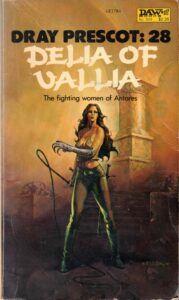
And I’ve already told you about the repeated mishegas with my book counting issues, so I won’t go into that again here, and I gave you a fairly quick rundown on the stats in the earlier post, so not gonna repeat that either. What I will do, however, is wish you well, and promise not to take quite so long getting this stuff before you for the next set of 100 books … which promise you’ll get to see whether I keep or not pretty quickly, as I’ve delayed writing all this stuff out so that I’m only about five books away from hitting #1400. But … well, reasons, and long story, and like that. Until next time!
The lists of previously read books may be found by following the links:
